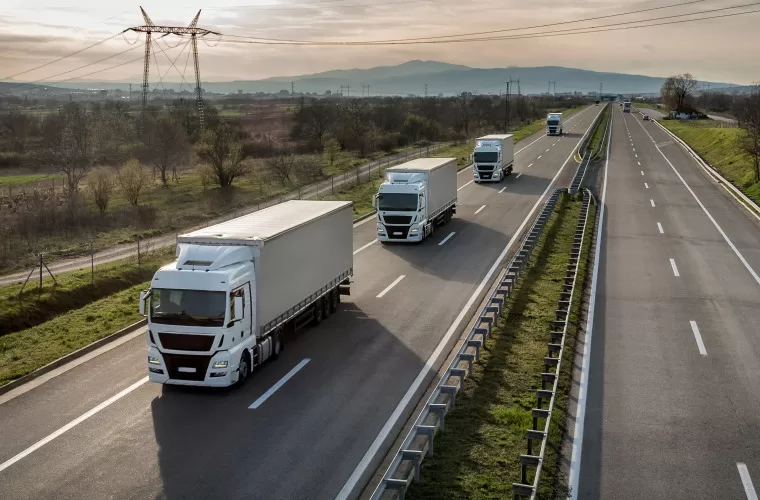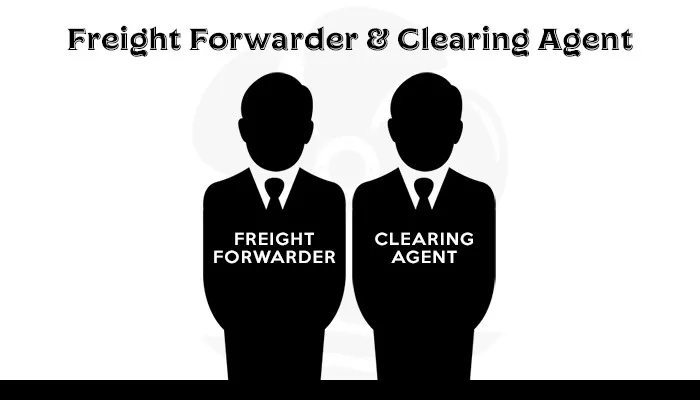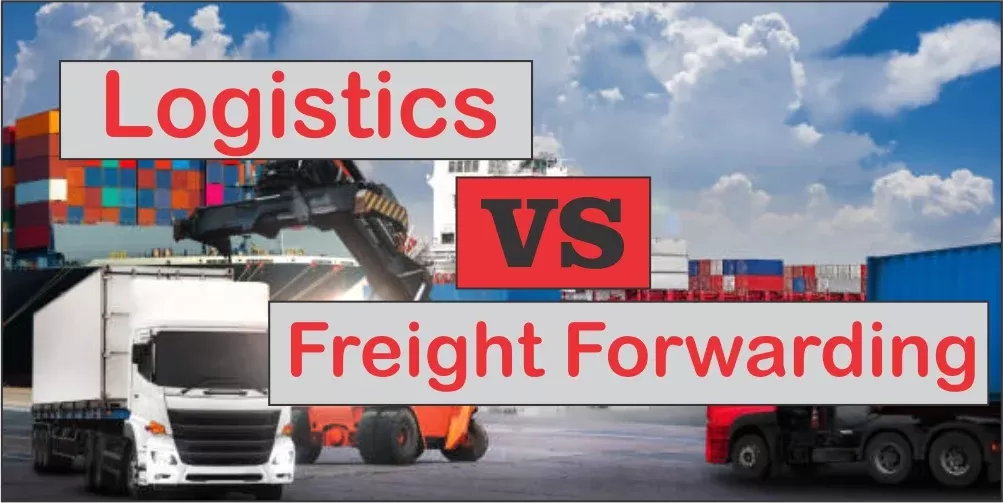If you’re in international trade,you’ve heard the term“1PL, 2PL, 3PL, 4PL & Beyond.”Maybe you use it yourself.But if you think it’s just a sophisticated phrase for booking a shipping container,you’re overlooking its true power—and likely leaving money on the table.
In the high-stakes world of global supply chains,freight logistics isn’t an expense;it’s your primary lever for controlling costs,ensuring reliability,and mitigating risk.It’s the critical discipline that transforms shipping from a reactive cost center into a proactive competitive advantage.
This isn’t just another article defining a term.This is a professional’s guide to understanding why freight logistics matters and how its strategic application directly impacts your bottom line.We will dissect what sets it apart from simple freight forwarding,map its continuous management cycle,and provide you with a checklist to assess if your business is truly benefiting from it.
Part 1:Freight Logistics Defined:The Orchestration of Movement
Let’s break down the term with precision.
Freight refers to the tangible goods being transported—the pallets,the containers,the crates.
Logistics is the science and art of managing the flow of those goods.It’s the planning,implementation,and control.
Therefore,Freight Logistics is the end-to-end,strategic management of the physical movement of goods from the point of origin to the point of consumption.
But here’s the critical nuance that most definitions miss:its core function is orchestration and optimization.
Think of it this way:anyone can book a plane ticket.But a master logistics professional doesn’t just book a ticket;they analyze the entire journey.They select the airline for reliability over lowest cost,choose the route to avoid hubs known for delays,arrange the ground transport to sync perfectly with arrival,and have a contingency plan for missed connections.They optimize for the total value of the journey,not just the sticker price of the ticket.
That is freight logistics.It’s the active,intelligent management of the entire process to find the optimal balance between cost,speed,and reliability.
Part 2:Freight Logistics vs.Freight Forwarding vs.Supply Chain Management:Clearing the Confusion
This distinction is where strategic understanding begins.Professionals often use these terms interchangeably,but they represent vastly different scopes of responsibility.
Freight Forwarding:The Tactical Executor
A How to Pick a Freight Forwarder for Amazon FBA is a vital specialist.They are the executors on the ground.Their primary role is to arrange the physical movement of your cargo.This involves:
Negotiating and booking space with carriers(shipping lines,airlines).
Preparing and processing complex shipping documentation(Bills of Lading,Air Waybills).
Arranging inland transportation to and from ports.
Coordinating FBA Customs Clearance Agent.
The Analogy:A freight forwarder is like a master carpenter you hire to build a bookshelf.They are excellent at their specific,tactical craft.
Freight Logistics:The Strategic Orchestrator
Freight logistics encompasses freight forwarding but operates at a higher,more strategic level.It’s the management of the entire symphony,not just the performance of one instrument.A freight logistics provider acts as your external,expert supply chain manager,focusing on:
Strategic Planning:Analyzing your total supply chain to recommend optimal modes(e.g.,shifting some volume from air to sea/rail mix for cost savings without disrupting inventory).
Continuous Performance Management:Monitoring carrier on-time performance,not just for one shipment,but over time,and holding them accountable.
Proactive Exception Management:Not just telling you a shipment is delayed,but having a pre-defined playbook to execute—rerouting,communicating with recipients,and minimizing impact.
Data Analysis and Optimization:Using data from all your shipments to identify trends,predict potential disruptions,and recommend ongoing improvements.
The Analogy:Freight logistics is the general contractor who designs the entire library,hires and manages the carpenter,the electrician,and the plumber,and ensures the project is on time and on budget.
Shipping from China to the United States (SCM):The Macro-Level Strategy
SCM is the widest lens.It encompasses the entire,end-to-end flow of a product—from raw material sourcing to manufacturing,inventory management,order fulfillment,and finally,delivery to the end customer.Freight logistics is the critical,execution-oriented component of SCM that manages the transportation and fulfillment legs of that journey.
Part 3:The Freight Logistics Process:A Cycle of Continuous Management
Freight logistics isn’t a linear process;it’s a continuous cycle of improvement.This is where the strategic value is built.
The Five-Stage Cycle of Freight Logistics Management:
1.Plan&Procure:This is the strategic foundation.It’s not about getting one quote;it’s about analyzing your annual shipping profile,forecasting volumes,and pre-negotiating rates with a curated selection of carriers based on their performance on your specific trade lanes.
2.Execute&Track:This is where freight forwarding happens,but with a key difference:visibility.Execution is supported by technology that provides real-time,predictive tracking,not just port-to-port updates but door-to-door visibility.
3.Monitor&Manage Exceptions:This is the hallmark of true management.Systems automatically flag delays(e.g.,a vessel arriving late at a transshipment port).The logistics team then executes a contingency plan before it becomes a crisis for you.
4.Settle&Audit:The process doesn’t end with delivery.This stage involves auditing freight invoices for billing errors(a common source of savings)and ensuring all costs are accurately allocated,providing true total-cost visibility.
5.Analyze&Optimize:This is the fuel for the next cycle.Data from all previous shipments is aggregated and analyzed.How did each carrier perform?Where are the bottlenecks?This analysis directly informs the“Plan&Procure”stage for the next quarter or year,creating a closed-loop system of continuous improvement.
Part 4:Why Freight Logistics is a Strategic Business Function,Not a Back-Office Task
When elevated to a strategic function,freight logistics delivers tangible business advantages that go far beyond moving a box from A to B.
Total Cost of Ownership Control:It shifts the focus from the cheapest freight rate to the lowest total cost.This includes factors like warehousing costs from slower transit times,the cost of capital tied up in inventory-in-transit,and the financial impact of stock-outs.A strategic mode shift,informed by logistics analysis,can save significantly more than haggling over a per-container rate.
Enhanced Reliability and Brand Reputation:Consistent,on-time delivery is a function of active management.It directly translates to higher customer satisfaction,repeat business,and protects your brand’s reputation for reliability.
Proactive Risk Mitigation:From ensuring impeccable customs compliance to advising on the right level of freight insurance,a logistics partner acts as your risk management department.They ensure that a single delayed shipment or a customs exam doesn’t derail your operations.
Part 5:Is Your Business Getting Full-Cycle Freight Logistics?A 5-Question Checklist
Are you working with a freight forwarder or a The Ultimate Guide to Choosing a Freight Forwarder?Ask yourself these questions:
1.Does your partner provide proactive,strategic recommendations based on your data,or do they simply execute your instructions?
2.Do you have a single platform that gives you real-time,predictive visibility into all your shipments,across all modes,with proactive exception alerts?
3.When a disruption occurs,does your partner immediately present you with a vetted solution(or execute it based on a pre-agreed playbook),or just inform you of the problem?
4.Do you receive regular,structured performance reports that analyze carrier performance,cost per lane,and on-time delivery rates?
5.Are you consistently audited for billing errors,and do you have a clear view of all costs beyond the ocean freight rate?
If you answered"no"to most of these,you are likely using a freight forwarder.There’s nothing wrong with that for simple shipments,but you are missing the strategic value of integrated freight logistics management.
Conclusion:From Cost Center to Competitive Advantage
In today’s volatile global market,hope is not a strategy.You cannot hope that your shipments arrive on time,hope that costs don’t spiral,or hope that regulations are met.
Freight logistics is the strategy that replaces hope with control.It’s the discipline of applying management,technology,and expertise to the complex problem of moving goods internationally.By understanding and implementing its principles,you stop seeing shipping as a mere cost and start leveraging it as a reliable,efficient,and powerful competitive weapon.
Ready to Move from Tactical Shipping to Strategic Management?
You now understand the theory.It’s time to see the difference it makes in practice.
Get a Strategic Assessment:Our experts can analyze your last 6 months of shipping data and provide a free,no-obligation report on potential cost savings and service improvements.[Link to Contact Form]
See the Technology in Action:Request a demo of our logistics management platform and experience the difference true visibility and control can make.
Speak to a Logistics Strategist:Have a complex challenge?Let's discuss how a strategic partnership can de-risk your supply chain and drive efficiency.Contact us today.
In-Depth Q&As on Freight Logistics
1.Q:Beyond cost,what are the most overlooked qualifications to look for in a freight logistics provider?
A:Two critical yet often underestimated factors arefinancial stabilityandcybersecurity posture.A provider with a strong balance sheet can weather market volatility without disrupting your supply chain.Equally important,robust cybersecurity protocols protect your sensitive shipment data,commercial documents,and payment information from breaches,which is a non-negotiable in today's digital landscape.
2.Q:For goods with special temperature requirements(e.g.,pharmaceuticals,high-end cosmetics),what does advanced freight logistics management involve beyond simply providing a refrigerated container?
A:Advanced cold chain logistics is aboutactive management.This includes using IoT-enabled containers with real-time sensors that monitor temperature,humidity,and even light exposure,triggering immediate alerts if thresholds are breached.Furthermore,it requires detailedcontingency protocols,such as pre-arranged backup power or standby equipment,to ensure integrity is maintained even during transshipment delays or technical failures.
3.Q:How are"lean principles"applied in freight logistics?Can you give a concrete example?
A:The core of lean is eliminating waste.A prime example is implementing aclosed-loop packaging system.Instead of using disposable crates,you partner with your logistics provider to use standardised,returnable plastic containers or pallets.After delivery,the empty assets are collected,inspected,and returned to the origin for reuse.This eliminates ongoing packaging material costs and disposal waste,creating a win-win for both cost efficiency and sustainability.
4.Q:How can a freight logistics provider help me navigate a sudden,global supply chain crisis like the Suez Canal blockage?
A:A superior provider demonstratesnetwork resilience.Their value lies in a proactive response:1)Immediate Alternatives:Instantly providing pre-calculated rerouting options(e.g.,around the Cape of Good Hope)with updated transit times and cost analyses.2)Modal Shift Execution:Quickly assessing and executing a switch from sea to air or rail for the most critical shipments.3)Customer Prioritisation:Managing capacity based on the strategic importance of clients'goods to keep the most vital supply lines moving.
5.Q:Why is"data standardisation"so critical for collaboration in freight logistics?
A:The supply chain involves multiple parties—shippers,consignees,carriers.Without standardised data(e.g.,cargo descriptions,codes),severe inefficiencies arise.Data standardisation(using EDI or API standards)enables seamless,accurate information flow between all systems,moving from"manual reconciliation"to"automated processing."This drastically reduces errors and delays,forming the bedrock of advanced logistics management.
6.Q:For What's the Cheapest Way to Ship from China(Less than Container Load)shipments,what value-added services beyond cost-saving does professional logistics management provide?
A:Expert LCL management includes:1)Compliance Pre-screening:Vetting documentation for all consolidated cargo at the origin warehouse to prevent your goods from being held up due to another shipper's paperwork errors.2)Optimised Stowage:Scientifically planning container loading based on cargo nature(e.g.,fragility,odour)to prevent damage from other goods in the same container.3)Destination Deconsolidation Efficiency:Operating efficient warehouse networks to quickly break down the container and sort your goods,minimising waiting time at the destination port.
7.Q:How does the"Vendor-Managed Inventory"model work within freight logistics?
A:In a VMI model,your logistics partner's role extends.They manage inventory on your behalf at the destination port or a regional hub.Based on agreed-upon stock levels,they not only handle transportation but also proactively trigger replenishment based on actual consumption or forecast data,managing everything from customs clearance to warehousing.This effectively transforms your supply chain into a more efficient,responsive"pull-based"model.
8.Q:What is the fundamental difference between"Amazon FBA Door-to-Door Shipping Costs"and regular freight logistics?
A:The core difference istemporality and uniqueness.Project logistics is designed for specific,one-off major projects,like moving a wind turbine blade or a factory module.It requires a dedicated,temporary project team for highly customised tasks:route surveys,special equipment selection,permit acquisition,and risk management.The team disbands after project completion,unlike regular logistics,which handles ongoing,repetitive freight flows.
9.Q:What is a"The Definitive Guide to Vetting Amazon FBA Freight Forwarders"model,and what role does it play in freight logistics?
A:A Control Tower is a centralised,often cross-functional team that acts as the"brain"of the logistics network.It doesn't execute operations but is responsible foroversight and decision-making.With end-to-end visibility of all movements,it uses advanced analytics to monitor performance,predict disruptions,and is empowered to make real-time decisions(like dynamically re-routing cargo)to optimise the entire network.
10.Q:For high-value cargo,what security measures exist that go beyond traditional insurance?
A:Enhanced security measures include:1)Covert Shipping:Not declaring high-value details on any external documentation;the goods are disguised within regular cargo.2)Accompanied Service:Employing trained security personnel to escort the shipment.3)Geofencing:Using GPS tracking to trigger immediate alerts and response protocols if a vehicle deviates from its pre-approved route.4)Monitored Storage:Using secure warehouses with biometric access controls at transit points.
11.Q:When negotiating a freight logistics contract,which Key Performance Indicators(KPIs),beyond price and transit time,should be written into the Service Level Agreement(SLA)?
A:Crucial KPIs include:1)Invoice Accuracy:Setting a target(e.g.,98%)with a required timeframe for correcting billing errors.2)Exception Response Time:Mandating the submission of a root-cause analysis and solution report within a set period after a disruption.3)Data Quality:Specifying the frequency and accuracy of tracking updates.4)Customer Service Standards:Such as call answer rates and email response times.These metrics holistically safeguard service quality and the partnership.

 EN
EN
 FR
FR
 ES
ES
 JA
JA
 PT
PT
 RU
RU
 AR
AR







